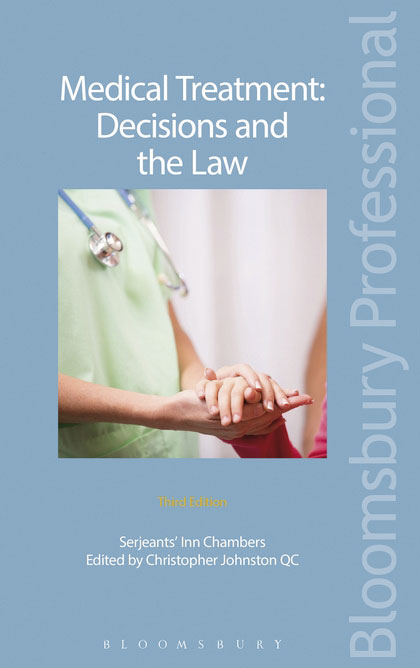
“It is as close to granting the reader a free, direct advice-line to counsel, as the joint heads of Serjeants’ Inn are ever likely to permit”
Editor: Christopher Johnston QC
Publisher: Bloomsbury Professional
ISBN: 9781780439174
Price: £110
There is no doubt a time and a place for the careful study of academic texts on medical law and ethics, but that is not in the offices of professional legal practitioners with critical deadlines looming.
At the other end of the spectrum, in those same offices, there should never be a place in our post-truth, alternative-fact world, for the desperate internet search undertaken to illuminate an unlearnt point of law or procedure (although of course the internet has some role—even the book which is the subject of this review gives us a link to Wikipedia for the views of Jehovah’s witnesses on the use of blood in treatment).
Ideal middle ground
Fortunately, in the third edition of what is a very fine practitioners’ guide, those acting in this field will find the ideal









